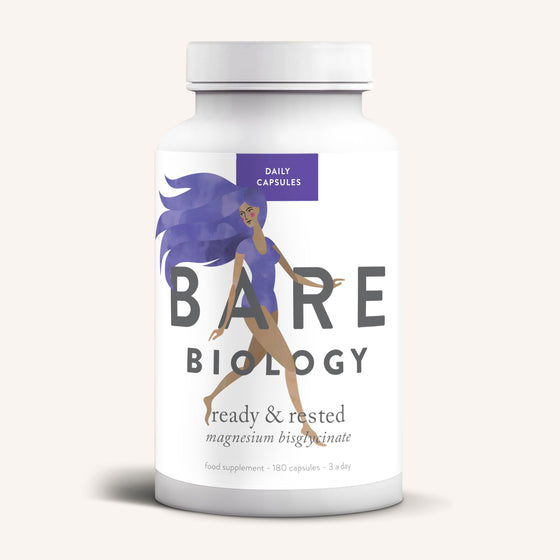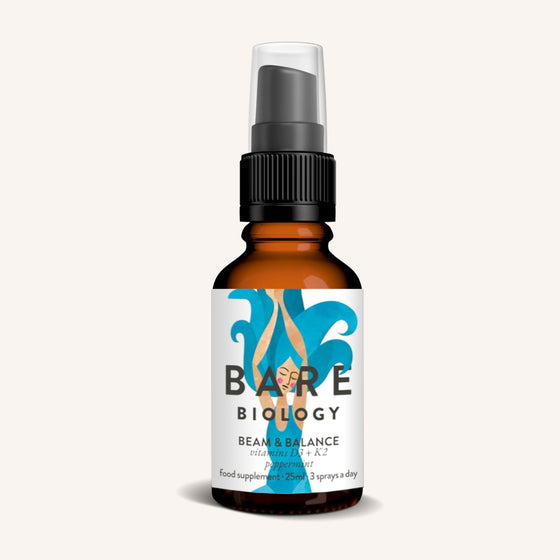There’s so much misleading information on the web regarding collagen powder, and we know it can make things very confusing. Here we break down some of the biggest myths regarding collagen and what the real benefits are.
Does powdered collagen really do anything?
The anecdotal evidence for taking collagen suggests impressive results for shinier hair, stronger nails, and improved skin elasticity, but what does the latest research tell us?
Although understanding the mechanism of exactly how taking collagen improves hair, skin, and nails is still an emerging field, a rummage through the latest scientific literature reveals some positive findings that back up what we already strongly suspected.
A 2019 review of 19 contemporary studies concluded that taking hydrolysed collagen orally for 90 days improved skin elasticity and hydration and reduced wrinkles, thus improving the signs of ageing.
But how about marine collagen in particular? One study, which specifically used low molecular-weight marine collagen, reported improved skin hydration after six weeks of use and improved wrinkles and elasticity after 12 weeks of use.
Additional studies indicate a benefit for joint pain and osteoarthritis.
Further research is required to evaluate the benefit of taking collagen to improve nail and hair health. Still, the studies mentioned above do indicate that taking collagen has a beneficial effect.
Collagen powder vs pill: is there a difference?
Collagen pills are simply collagen powder in pill form; as long as they are both hydrolysed, the body will break them down in the same way: peptide chains will be absorbed into the bloodstream via the small intestine.
So, in theory, there is no difference in potency, though powdered collagen offers the following benefits:
VERSATILITY: as it is odourless and tasteless, you can add powdered collagen to your coffee, a smoothie, and many other recipes.
FLEXIBILITY: a powder allows you to take exactly the amount you need, as and when you want it: you can add some to your water bottle to sip on through the day.
PURITY: some capsules may contain more fillers and binders than powder to get them into capsule form. Always read the label.
SIMPLICITY: you may have to take several pills to get the equivalent dose that you would get from one spoonful of powder.
Whether in pill or powder format, not all collagens are of the same quality. Both our marine and bovine collagen powders are sustainably sourced and third-party tested for purity. Our MSC certified Skinful collagen comes from sustainable wild caught cod from Norway. Our Fundamental collagen is sourced from grass-fed EU cattle (mostly Swiss).
Collagen Powder Myth Buster
Myth 1: Collagen powder is damaged by heat
Large collagen molecules can be affected by heat but small, hydrolysed peptides (the type you'll find in Bare Biology collagen powders) can withstand heat up to 300°C! This makes collagen one of the few protein powders that can be used in hot drinks.
For those who are interested, here's a cool study to back up this claim.
Myth 2: One-size-fits-all dosing
As with most supplements, everyone responds to collagen differently. That’s why we steer clear of a one-size-fits-all approach to serving sizes. But we do need to put a guideline on the label.
Our manufacturer suggests a daily intake of 5g to 10g. When we first launched our Skinful collagen, we recommended 10g per day for the first month. But after a few months, we started hearing from customers and Nutritional Therapists who were experiencing great results with just 5g. Based on this feedback, we updated our label to reflect a 5g serving.
For our Fundamental bovine collagen, we’ve kept the recommended serving at 10g. This provides a high-impact dose while still being affordable for regular use.
Ultimately, your ideal collagen intake depends on your goals, routine, and budget. Factors like your age, metabolism, and overall health can all play a role, so if you have specific concerns, it’s always a good idea to check in with a Nutritional Therapist.
And if you like to keep things precise, we offer handy 5g and 10g scoops to make measuring simple!
Myth 3: Collagen powder doesn't survive stomach acid
We consulted Nutritional Therapist, Susie Debice BSc Hons, Dip ION, who says:
“When it comes to the bonds between the amino acids in the long peptide chains, most are easily broken by the action of stomach acid. However, one particular amino acid, hydroxyproline, found linked to proline or glycine in a collagen peptide chain, forms incredibly strong bonds that are pretty resistant even to the toughest of proteolytic enzymes. Why is this important? Because the dipeptides and tripeptides containing hydroxyproline get readily absorbed across the small intestine and play a key role in the way your body produces its own collagen."
Both marine and bovine collagen are high in these amino acids. You can check out their full amino acid profiles on the Skinful collagen and Fundamental collagen product pages. Just click “Read our test results”.
Summary
Based on our own personal experience of taking collagen powder, our product and Trustpilot reviews, and the studies available we think it’s a good investment if you’re in your late twenties or older. Before then, you probably don’t need it as you have lots of your own collagen.





